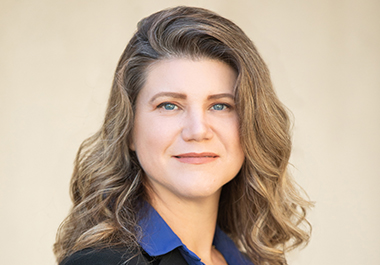When a Grant Means “More than Money”
Kimberly Kelly, PhD, the CEO of a biotech startup called ZielBio, received an AACR-PanCAN Career Development Award for Pancreatic Cancer Research as one of the first grants of her independent academic career. The value of the grant, she says, is more than the money.

“It’s the mentorship,” she says. “It’s the career development part, and it’s the external validation that a granting or a funding agency thinks that your ideas are worth it. It’s the ability to meet incredibly brilliant people, and in this case to be folded in the pancreas cancer research family and to get their ideas and to really validate and test your thoughts and your hypotheses.”
She rubbed elbows and exchanged thoughts with top researchers and funders at events such as the PanCAN Annual Scientific Meetings and the AACR-supported Special Conferences on Pancreatic Cancer.
“The value of the grant is immeasurable in many ways, and it’s not just the level of funding,” she says. “It’s also the rich network of a brain trust that I found in this community.”
Kelly sought the grant in 2007 as an assistant professor of biomedical engineering at the University of Virginia, trying to find new strategies to detect and treat pancreatic cancer.
She found that a protein called plectin-1 was especially abundant on the surface of pancreatic cancer cells. Her research group subsequently showed that knocking down plectin-1 negatively impacted pancreatic cancer cell proliferation and metastasis. Her key findings on cancer-specific plectin (CSP) laid the groundwork for her NIH/NCI-funded research efforts to home in on CSP as a strategy to detect pancreatic cancer at its earliest stages.
Kelly did not stop at trying to detect pancreatic cancer, however. The ultimate goal is to kill these pancreatic cancer cells. To Kelly, CSP is also a target for a monoclonal antibody that induces the immune system to attack.
She recast a company she had already formed and renamed it ZielBio, after the German word for “target.”
The company’s first candidate drug is an antibody called ZB131, which she says has shown encouraging action in preclinical models of ovarian and pancreatic cancer and cholangiocarcinoma, including what she describes as complete regression of tumors.
“Using our ZielFind technology, we found CSP being expressed at important levels in over 12 different cancers. That means we’ve discovered a mechanism that the majority of cancers are using, and that you can treat any cancer that has CSP expression, and hopefully would have the same outcome.”
ZB131 is headed for a phase 1 trial towards the end of 2021, Kelly says. Whatever happens with the first drug, more are in the company’s pipeline as it expands operations.
“Ziel” is pronounced “zeal,” which sums up Kelly’s approach to science and business – which combines targets with passion and zest.
“You really have to be passionate about what you’re doing and believe in it, because in starting a company, you’re going to find a lot of rejection. You really have to have faith in yourself and faith in what you’re doing, that you’re going to make a difference, and then you have to network, network, network.”
“I am not capable of doing things by half measures,” she says.
UPDATE: In December 2022, ZielBio announced that the U.S. Food and Drug Administration (FDA) granted Orphan Drug Designation to ZB131, a proprietary monoclonal antibody, for the treatment of pancreatic cancer. ZielBio previously received Orphan Drug Designation for ZB131 for the treatment of cholangiocarcinoma (bile duct cancer).